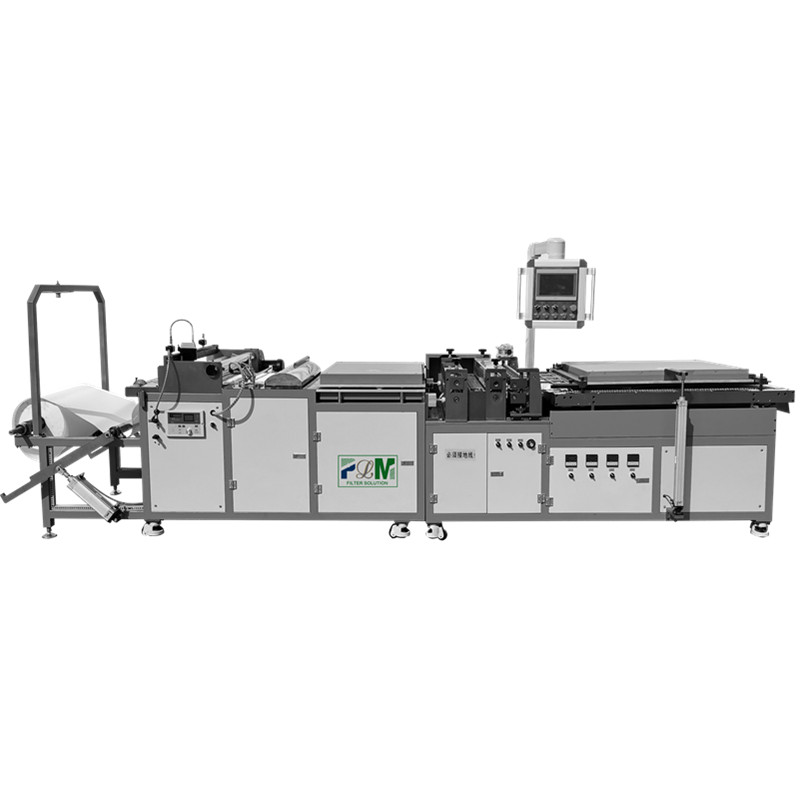Aug . 10, 2024 23:20 Back to list
Exploring Applications and Benefits of OEM Uncured Filter Paper in Various Industries
Understanding OEM Uncured Filter Paper An Essential Component in Filtration Processes
In the world of filtration, quality materials are essential for optimal performance. One such material is OEM uncured filter paper, which is widely used in various industries, including pharmaceuticals, food and beverage, chemicals, and environmental testing. This article delves into the properties, production process, and applications of uncured filter paper, highlighting its significance in the filtration landscape.
What is OEM Uncured Filter Paper?
OEM stands for Original Equipment Manufacturer, referring to a product designed to be customized and used in specific equipment or machines. Uncured filter paper, as the name suggests, is a type of filter paper that has not gone through a curing process. This means that while it possesses the fundamental characteristics of filter paper, it maintains a level of flexibility and can be further processed to meet specific requirements.
Uncured filter paper is typically made from high-quality cellulose fibers, which provide excellent filtration capabilities. Its structure is designed to retain particulates while allowing liquids and gases to pass through, making it ideal for applications that require precise filtration.
Production of Uncured Filter Paper
The manufacturing process of OEM uncured filter paper begins with sourcing high-grade cellulose fibers. These fibers are subjected to a series of treatments, including pulping and refining, to enhance their filtration properties. The pulp is then formed into sheets through a wet-laying process, where water is used to create a uniform sheet of paper.
One of the key advantages of uncured filter paper is its adaptability. It can be processed further to improve its characteristics, such as increasing its thickness, strength, or chemical resistance. This adaptability makes it suitable for various applications, providing manufacturers with the ability to tailor their products to specific needs.
Applications of OEM Uncured Filter Paper
The versatility of OEM uncured filter paper allows it to be used in a wide range of applications. Here are some notable areas where it plays a crucial role
oem uncured filter paper

1. Pharmaceutical Industry In drug manufacturing, uncured filter paper is used to clarify solutions and remove impurities. Its high purity and varying pore sizes ensure that only the desired substances pass through, maintaining the integrity of pharmaceutical products.
2. Food and Beverage In the food industry, uncured filter paper is employed for the filtration of oils, juices, and beverages. It helps in removing sediments and particulates, contributing to the production of clear and high-quality products.
3. Environmental Testing Uncured filter paper is vital in environmental testing applications, such as water quality assessments. It is used to filter samples, ensuring that accurate data is collected for analysis.
4. Industrial Processes In various industrial settings, uncured filter paper is utilized in processes such as paint filtration, chemical processing, and more. It’s crucial for ensuring that production processes remain efficient and contamination-free.
Advantages of Using OEM Uncured Filter Paper
One of the most significant advantages of OEM uncured filter paper is its customizability. Manufacturers can specify the exact properties they require, leading to better performance in specific applications. Additionally, the uncured nature of the paper allows it to maintain a balance between flexibility and strength, making it easier to work with during the filtration process.
Moreover, the high absorbency and retention capabilities of uncured filter paper ensure that it effectively captures contaminants and particulates, providing reliable filtration solutions across different industries.
Conclusion
OEM uncured filter paper is a critical component in various filtration processes, providing versatility, adaptability, and high-performance filtration. Its applications across industries highlight its importance in ensuring product quality and operational efficiency. As technology continues to advance, the use of uncured filter paper is likely to expand, making it a cornerstone material for filters in the modern manufacturing landscape. Whether in pharmaceuticals, food production, or industrial processes, uncured filter paper proves to be an invaluable asset in achieving filtration excellence.
-
Premium HEPA Air Filter for Dyson Parts | Efficient Filtration
NewsAug.04,2025
-
AI-Optimized Active Carbon Filter for Air Purifiers | 51 chars
NewsAug.02,2025
-
Premium Active Carbon Air Filter for Air Purifiers | Odor Removal
NewsAug.01,2025
-
Activated Carbon Air Filters: Ultimate Odor Removal for Purifiers
NewsJul.31,2025
-
PP Spun Filter Cartridge Making Machine for Efficient Filtration Solutions
NewsJul.29,2025
-
Active Carbon Air Filter for Air Purifier - Superior Odor & Pollutant Removal
NewsJul.29,2025
